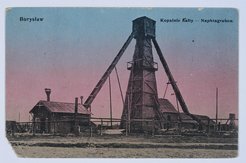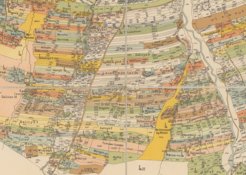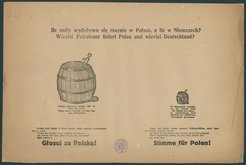Petroleum, Press, and Politics: Early Oil Debates in Light of Environmental Determinism
This project explores historical discourses on petroleum extraction in Galicia, highlighting contrasting perspectives: one of technological advancement and another of moral and economic concerns. It investigates how these debates reflect broader global trends in environmental determinism and nation-building, shaping contemporary mindsets. Utilizing advanced computational methods, including text embeddings and divergence measures with Language Model Models (LLMs), the project aims to analyze and compare historical press coverage across linguistic traditions. Simultaneously, it addresses biases in archival data through innovative simulation techniques, promoting transparency in Geoanthropological research. By implementing rigorous pre-publishing standards for data and code, the project ensures the reliability and reproducibility of its findings.

In 1901, while referring to petroleum exploitation in Galicia (Eastern Europe), Edmund Libański, an avid populariser of technical knowledge among Poles, described two contrasting ‘worlds’ of that industry: one of vibrant activity and technological progress, showcasing the application of natural history knowledge, and the other darker world depicting the negative aspects like competition, greed, and the potential for moral decline among speculators blinded by the desire for wealth1. The debates in the Polish press at the turn of the century, are representative of wider transnational trends, at the intersection of environmental determinism, nation-building, and the attribution of normative values to science and technology. The legacies of debates similar to these globally continue to influence the current mindsets. Extractivism as an epistemology in early discourses about oil extraction goes beyond mere economic practices; it involves a set of beliefs, values, and ways of knowing that justify and perpetuate the extraction of resources from the environment.

In the press, various stakeholders discussed intensely how the development of the petroleum industry might affect their companies’ or nations’ socio-economic and political positions internationally. The ideas linking nature, industry, and culture were nuanced and context-specific, yet they also had universal, uniting aspects. This project intends to develop a pipeline for distant reading of historical newspapers and periodicals, incorporating all steps, from the necessary pre-processing tasks through to content analysis, using text embeddings and divergence measures aided by LLMs. The pipeline will be used to analyse and compare historical publications across linguistic traditions and obtain a holistic appreciation of the global narratives about early petroleum extractivism.
Parallelly, and in relation to the above work, in the Fundamentals of Data Integration and Data Biases project, together with Malte Vogl, Raphael Schlattmann and external collaborators, we are currently developing methods to simulate missing or erroneous archival data. By investigating biases in historical archives and other data sources, we aim to quantify their impact on research findings. Open science and open-source software initiatives, such as this one, play a crucial role in promoting transparency and accessibility in Geoanthropological research based on historical sources. Additionally, implementing good pre-publishing practices for both data and code will ensure the reliability and reproducibility of the institutional research outputs.

1Edmund Libański, ‘Nafta i wynalazki polskie na wystawie Towarzystwa Politechnicznego we Lwowie.’, Naokoło Świata: pismo tygodniowe ilustrowane, poświęcone opisom ziem, ludów, podróży, zjawisk przyrody i wynalazków 1, no. 29 (12 July 1902): 449–51.
Keywords
Petroleum, Nation-building, Nineteenth Century, Twentieth Century, Newspapers, Periodicals, Distant Reading, Archival Biases, Discourse Analysis, Digital Methods














